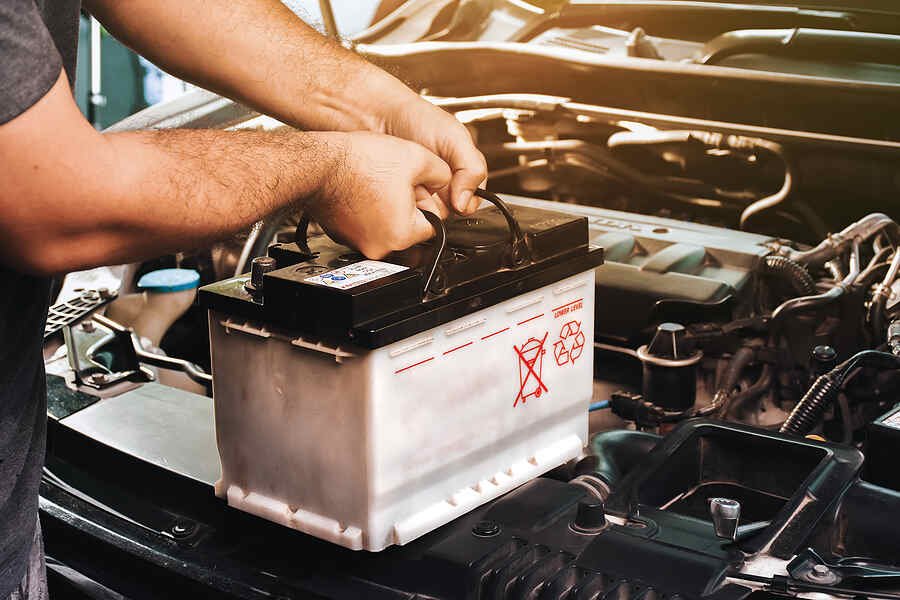Gun laws in the United States are found at both the federal and state levels. Federal gun laws generally regulate things like who is allowed to own a firearm, where they can be purchased, and how they must be stored and transported.
At the state level, gun laws vary significantly from jurisdiction to jurisdiction.
Does Ammo Have Its Own Set Of Regulations?
Yes, ammunition does have its own set of regulations that vary by state.
In general, most states require individuals to be 18 or 21 years old in order to purchase ammo for firearms. Many states also require background checks for ammo purchases in order to help prevent potential illegal activity with firearms.
Moreover, there may be restrictions on the amount of ammo that can be purchased in one transaction.
Is Ammo Allowed To Be Kept At Home?
Yes, in most states it is legal to store ammunition at home as long as the firearms they are intended for are also stored safely and securely. However, some states may have additional requirements such as requiring ammo to be stored in a secure container or away from any living space.
It is important to check your state’s laws and regulations on storage of ammo before making any decisions about where to keep it in your home.
There may be restrictions on how much ammo you can legally own at one time. If you have questions about these limits, make sure to consult with an attorney who specializes in gun laws before proceeding with any purchase or ownership.
What Types Of Ammo Are Allowed At Home?
The types of ammo allowed at home will depend on the laws in your state.
Generally, most states do not make any distinctions between different types of ammo when it comes to storage requirements; however, some states may have specific restrictions for certain types of ammo, such as armor-piercing or tracer rounds.
It is important to check your local laws and regulations before purchasing or storing any type of ammo in your home. Some states may require that certain types of ammunition are stored in a locked container or away from living spaces.
How Can Ammo Be Purchased Legally?
Ammunition can safely be purchased from reputable local gun and sporting goods stores, online retailers, or directly from the manufacturer.
It is important to make sure that the retailer you are buying from has a valid Federal Firearms License (FFL) and that they follow all applicable laws when it comes to ammunition sales.
Be sure to check with your local law enforcement agency to ensure that you are in compliance with all local and state regulations that may apply.
It is important to inspect any ammunition prior to purchasing to make sure there are no defects or malfunctions.
Buying ammo in bulk can be an economical and convenient way to ensure you have enough ammunition for all your shooting needs. However, it is important to be aware of local laws and regulations before making any purchases.
In the United States, most states require a person to have either a firearms owner identification (FOID) card. Depending on where you live, this card may require a background check and proof of age.
The next step is to find a reputable dealer who carries the specific type of ammunition that you need. Look for dealers that have good reviews from other customers and offer discounts when buying in large quantities.
You should also make sure to ask about any restrictions or taxes that may be applied when purchasing ammo in bulk.
Once you have chosen a dealer, you will need to submit the appropriate paperwork and payment before receiving your ammunition.
It is important to verify that the ammunition is stored safely and in accordance with local laws and regulations. You should also make sure the manufacturer information is accurate and up-to-date.
How To Safely Store Ammunition At Home?
Storing ammunition safely at home is important in order to prevent accidental discharges and injuries.
First, all ammunition should be stored away from any living spaces such as bedrooms or common areas. It should also be kept away from any sources of heat or moisture which could cause the ammo to deteriorate over time.
It is also important to ensure that the ammo is properly labeled and organized so that it can be easily identified and retrieved in an emergency.
When transporting ammo, make sure to do so in a secure container and never leave it unattended in your vehicle. This will help prevent it from falling into the wrong hands.
The Importance Of Having A Secure Storage System For Your Weapons And Ammo
Having a secure storage system for weapons and ammunition is critical for safety, both inside and outside the home. Firearms should be stored in a locked container that cannot be accessed by unauthorized individuals.
Ammunition should also be stored separately from firearms in order to prevent accidental discharges or misuse. Additionally, storing weapons and ammo away from living spaces can help reduce the risk of a potential intruder accessing them.
Having a secure storage system will also ensure that all firearms and ammunition are properly maintained, which can help extend their lifespan.
Finally, having a secure storage system for weapons and ammo helps to ensure compliance with any applicable laws or regulations in your state.
Different Ways To Transport Firearms And Ammunition Legally
Transporting firearms and ammunition safely and legally is important in order to ensure the safety of others.
All firearms should be unloaded when transporting them and stored in a locked container that cannot be accessed by unauthorized individuals. Any ammo should be kept separate from the firearm and also stored in a secure container.
Some states may require that firearms be covered or concealed when transporting them and it is important to check your local laws and regulations for more information.
When traveling by air, all firearms must be declared at the ticket counter and transported in a hard-sided container that can be relocated only by airport security personnel.
Never leave a firearm unattended in your vehicle; this could lead to it falling into the wrong hands.
By following all necessary safety protocols and legal requirements, you can safely and legally transport firearms and ammunition.
How To Properly Dispose Of Unused Or Expired Ammunition
When disposing of unused or expired ammunition, it is important to properly manage the process in order to ensure safety and compliance with applicable laws.
Never attempt to dispose of ammunition on your own; instead, contact a qualified gunsmith or other professional firearms dealer for assistance.
All ammo should be packaged securely in a box or container and labeled properly to indicate that it is expired or inactive.
Depending on your local laws and regulations, you may be required to bring the ammunition to a police station, firearms dealer or other authorized facility for disposal.
Never dispose of ammo in any public areas such as parks or woods; this could lead to environmental contamination and potential injury.
Resources For Learning More About Gun Safety And Regulations
There are many resources available to help individuals learn more about gun safety and regulations.
Organizations such as the National Rifle Association (NRA) offer classes and education on firearms safety, as well as legal requirements in your state or locality.
Most local police departments or sheriff’s offices have information or courses on gun safety that may be helpful as well.
Online resources such as Firearms and Explosives’ website provide comprehensive information about federal firearm regulations, as well as state-specific laws and regulations.
Importance Of Following Gun Laws And Regulations
It is essential to follow all applicable laws and regulations when it comes to gun ownership. Not only can this help ensure the safety of yourself and those around you, but it can also protect your rights as a gun owner.
Final Words
In order to stay in compliance with the law, individuals should familiarize themselves with their state’s firearm laws and regulations. It is also important to understand the federal laws and regulations that apply to firearm ownership.
Recommended Post: Buying Hunting Knives: How To Find The Perfect One















